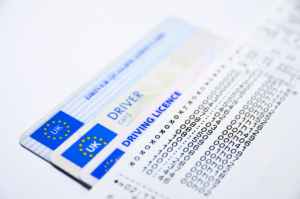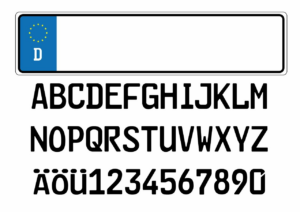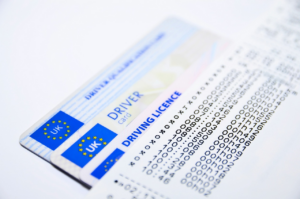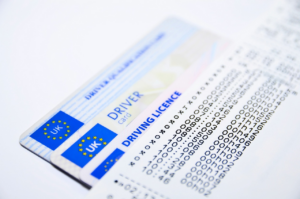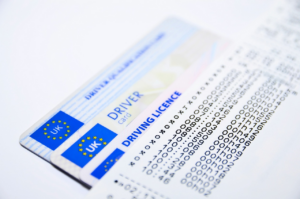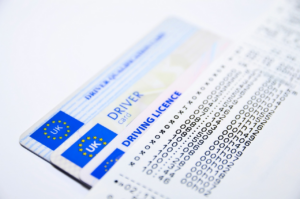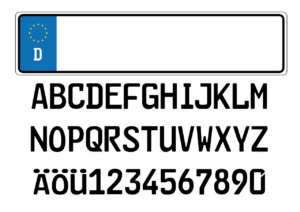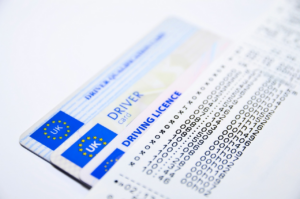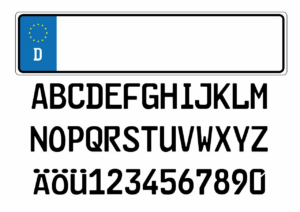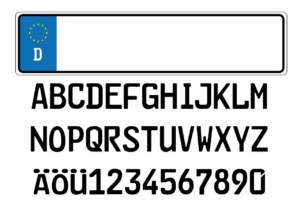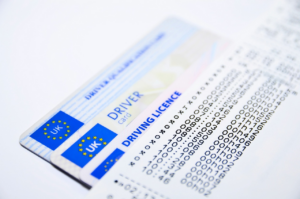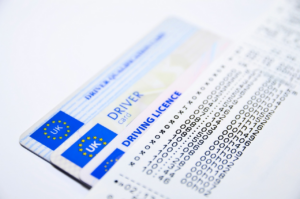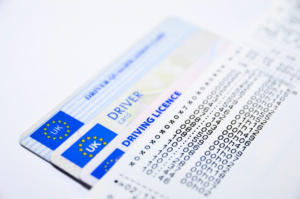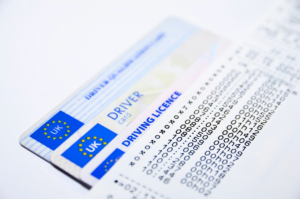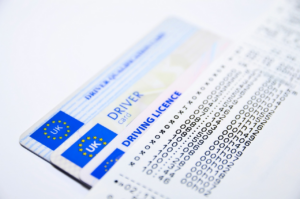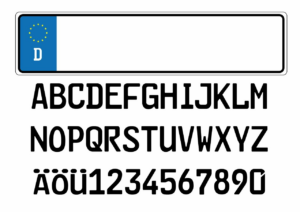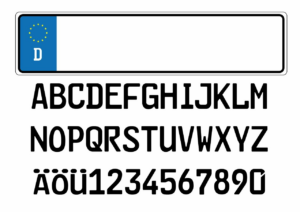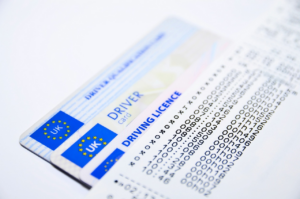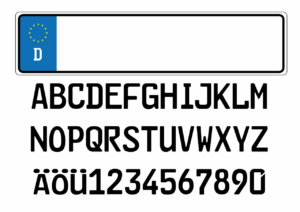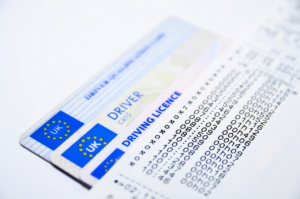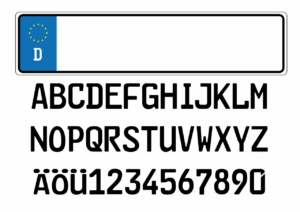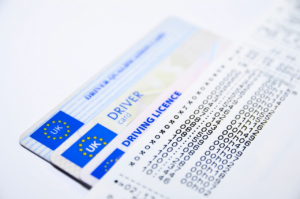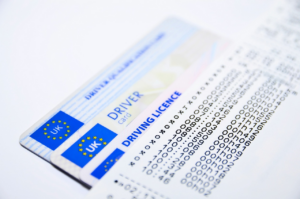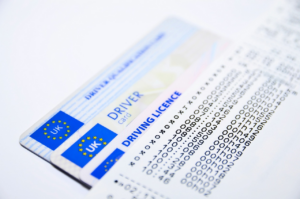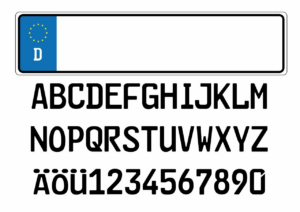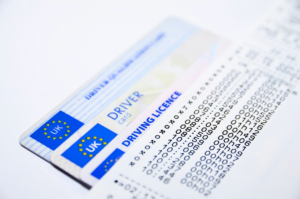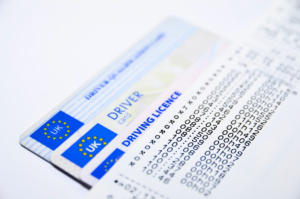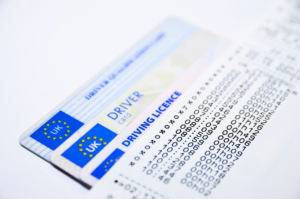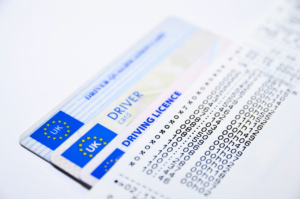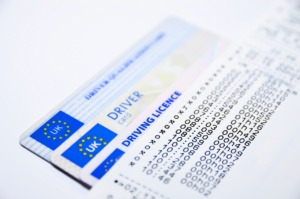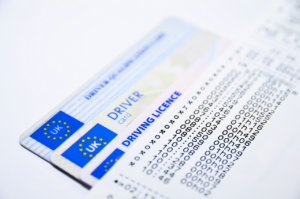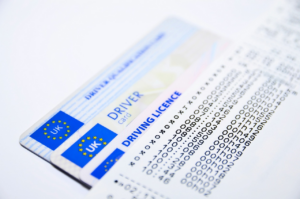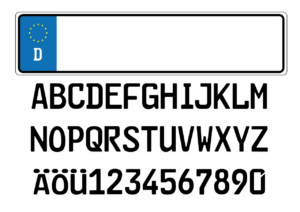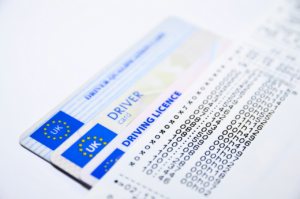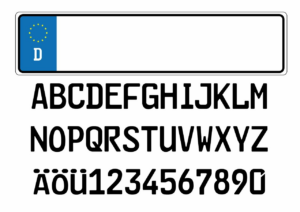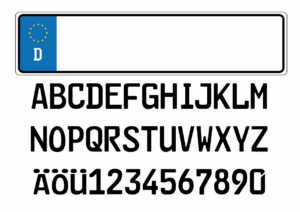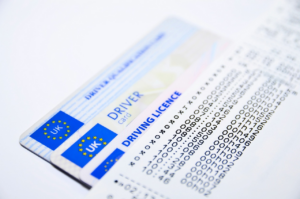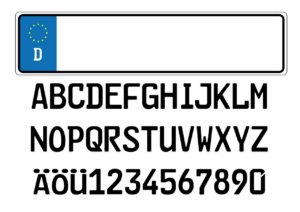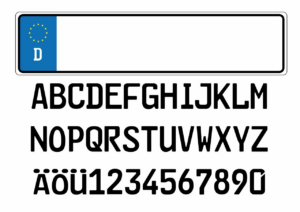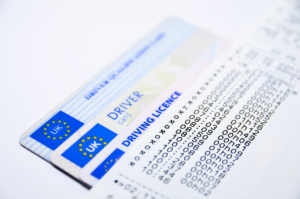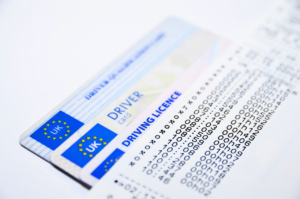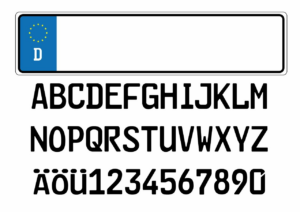If you’re planning on driving in the United Kingdom, it’s important to be aware of the country’s driving licence laws and regulations. While the process of obtaining a UK driving licence may seem straightforward, there are specific requirements and steps you must follow. Understanding these requirements can help you avoid legal issues and ensure that you’re able to safely operate a vehicle on UK roads.
In this article, we’ll provide an overview of UK driving licence laws and regulations, including eligibility requirements, the types of licences available, and the steps you’ll need to take to obtain and renew your licence. Whether you’re a new driver or a seasoned veteran, this guide will provide you with the information you need to navigate the UK’s driving laws and regulations with confidence.
So, buckle up and let’s get started!
Overview of UK Driving Licence Laws and Regulations
You’re about to discover everything you need to understand and follow if you want to stay on the right side of the rules and avoid getting into trouble while you’re out on the road.
In the UK, driving licence laws and regulations are strict and must be adhered to at all times. It’s mandatory to have a valid driving licence to drive a vehicle on UK roads. Failure to comply with the rules can result in fines, penalty points or even disqualification from driving.
To obtain a full UK driving licence, you must first pass a theory test and a practical driving test. Learner drivers must be at least 17 years old to apply for a provisional licence, which allows them to drive on the roads under the supervision of a qualified driver.
It’s important to note that the rules for driving licences may vary depending on the type of vehicle you want to drive, so it’s essential to check the specific requirements before applying for a licence.
Overall, it’s crucial to keep up to date with the latest driving licence laws and regulations to ensure you remain legal and safe while on the road.
Eligibility for Driving on UK Roads
If you’re looking to drive on UK roads, there are some important eligibility requirements to keep in mind.
Firstly, you need to be above the minimum age requirement, which varies depending on the type of vehicle you wish to drive.
Secondly, you must be a resident of the UK with a valid UK address.
Lastly, certain medical conditions and restrictions may impact your eligibility to drive in the UK, so it’s important to be aware of these before hitting the road.
Age Requirements
You’ll need to be a certain age before you can legally hit the road with a valid licence. The age requirements for driving in the UK are as follows:
-
You can apply for a provisional driving licence when you’re 15 years and 9 months old, but you can’t start driving until you’re 17.
-
If you’re 17 or older, you can apply for a provisional driving licence and start learning to drive immediately.
-
If you’re over 21, you can apply for a full driving licence without having to go through the provisional stage.
It’s important to note that these age requirements apply to all types of vehicles, including cars, motorcycles, and commercial vehicles.
Additionally, there may be certain restrictions for young drivers, such as a limit on the number of passengers they can carry or a restriction on driving at night. Make sure to check the specific regulations for your age and type of vehicle before hitting the road.
Residency Requirements
Living in the UK for a certain period of time is necessary in order to obtain a valid driver’s permit. You must be a resident of Great Britain or Northern Ireland for at least 185 days in a year in order to be eligible for a UK driving license. Proof of residency can include utility bills, bank statements, and council tax bills.
Additionally, if you’re from a non-European Union country, you’ll need to provide evidence of your right to reside in the UK. This can be in the form of a visa or a residence permit. It’s important to note that if you’re a student, you may be able to apply for a UK driving license, but you’ll need to meet certain requirements, such as having a valid visa and being enrolled in a full-time course.
Overall, understanding the residency requirements for a UK driving license is crucial in order to avoid any potential issues when applying for a permit.
Medical Conditions and Restrictions
It’s important to be aware of any medical conditions or restrictions that may affect your ability to drive safely. In the UK, there are certain medical conditions that must be reported to the Driver and Vehicle Licensing Agency (DVLA). These include conditions such as epilepsy, diabetes, and heart conditions. Failure to report these conditions could result in a fine of up to £1,000 and even prosecution if an accident occurs as a result of the condition.
The DVLA may also place restrictions on your driving licence if you have a medical condition that affects your ability to drive safely. For example, if you have a seizure disorder, you may be required to have a certain period of time without a seizure before you can drive again.
It’s important to follow any restrictions placed on your licence to ensure your safety and the safety of others on the road. If you’re unsure whether your medical condition needs to be reported to the DVLA, it’s best to check with your doctor or a medical professional.
Types of UK Driving Licences
If you want to get behind the wheel in the UK, you’ll need to know which type of licence you should aim for.
There are three main types of driving licences in the UK: the provisional licence, the full driving licence, and the international driving permit (IDP).
The provisional licence is for those who are learning to drive, while the full driving licence is for those who have passed both the theory and practical driving tests. The IDP, on the other hand, is for those who want to drive in the UK with a driving licence from another country.
It’s important to note that there are also different categories of driving licences, depending on the type of vehicle you want to drive. These include categories for motorcycles, cars, buses, and lorries.
To obtain a licence for a specific category, you’ll need to take additional tests and meet certain requirements. It’s important to check which categories are included in your licence before driving a particular type of vehicle.
Steps to Obtain a UK Driving Licence
To get on the road in the UK, you’ll need to follow a few steps to acquire your driving permit.
First, you’ll need to apply for a provisional driving licence. You can do this online or by filling out a D1 application form and sending it to the DVLA. You must be at least 15 years and 9 months old to apply for a provisional licence for a moped or light quad bike, and 17 years old for a car or motorcycle.
Once you have your provisional licence, you’ll need to start learning to drive by taking driving lessons with a qualified driving instructor. You can also practice driving with a family member or friend who’s had their licence for at least 3 years and is over the age of 21.
After you have gained enough experience and confidence, you can take the practical driving test to obtain your full UK driving licence. It’s important to note that you must pass both the theory and practical tests to obtain your licence, and that you must also meet certain medical and legal requirements to be eligible for a driving licence.
Renewing and Updating Your UK Driving Licence
Now that you’ve obtained your UK driving licence, it’s important to know how to renew and update it.
Your driving licence is valid for 10 years and must be renewed before it expires. It’s important to keep your licence updated with the correct information, such as your address and any medical conditions that may affect your driving ability.
To renew your driving licence, you can do so online or by post. You’ll need to provide a recent passport-style photo, your current driving licence, and pay a fee of £14. If you have any medical conditions that may affect your driving ability, you may need to provide additional documentation. Renewing your driving licence before it expires is crucial as you may face penalties and fines if you continue to drive with an expired licence.
Here are five things to keep in mind when renewing or updating your UK driving licence:
- Your driving licence is valid for 10 years and must be renewed before it expires.
- You can renew your licence online or by post.
- You will need to provide a recent passport-style photo and pay a fee of £14.
- You may need to provide additional documentation if you have any medical conditions that may affect your driving ability.
- It’s important to keep your licence updated with the correct information, such as your address and any medical conditions.
Driving in the UK as a Tourist
Discover how you can explore the UK hassle-free as a tourist with your own car. As a tourist, you can drive in the UK using your valid driving licence from your home country. However, there are a few things you need to keep in mind. Firstly, make sure that you have the right insurance coverage to drive in the UK. You can either purchase separate insurance or check if your existing policy covers driving abroad. Secondly, make sure that your car meets the UK’s vehicle standards, such as having the steering wheel on the right side of the car.
To make your road trip in the UK even more enjoyable, consider adding these top tourist destinations to your itinerary. Use this table to plan your trip and make the most out of your UK adventure:
| Destination | Highlight | Emotion |
|---|---|---|
| London | Big Ben, Buckingham Palace, Piccadilly Circus | Excitement |
| Edinburgh | Edinburgh Castle, Royal Mile, Arthur’s Seat | Fascination |
| Bath | Roman Baths, Pulteney Bridge, Jane Austen Centre | Relaxation |
With your driving licence and proper insurance coverage, you can enjoy the freedom of exploring the UK on your own terms. Plan your trip carefully and make sure to include these must-see tourist destinations for an unforgettable experience.
Penalties for Driving Offences
You’ll want to avoid getting caught breaking the rules while driving in the UK, as penalties for offences can put a damper on your trip and leave you feeling frustrated and stressed.
Here are some of the most common offences and their corresponding penalties:
-
Speeding: Depending on the speed limit and the severity of the offence, fines can range from £100 to £1,000, and drivers may also receive penalty points on their licence.
-
Using a mobile phone while driving: This offence can result in a fine of £200 and 6 penalty points, which can lead to a driving ban for new drivers.
-
Driving under the influence of alcohol or drugs: The penalties for this offence include a minimum 12-month driving ban, a fine of up to £5,000, and even imprisonment in some cases.
-
Failing to wear a seatbelt: Drivers can be fined up to £500 if they or their passengers are not wearing a seatbelt while driving, and may also receive penalty points on their licence.
It’s important to familiarize yourself with these penalties before driving in the UK, and to always follow the rules of the road to avoid any unnecessary fines or legal trouble.
Staying Safe on UK Roads
Stay safe on the roads of the UK by following these tips and tricks to ensure a smooth and enjoyable journey.
First and foremost, always wear your seatbelt and make sure all passengers do as well. It may seem like a hassle, but it can save your life in the event of an accident. Additionally, ensure that children are properly secured in car seats or booster seats, according to their age and size.
Another important tip is to always obey the speed limit and other traffic laws. Running red lights, texting while driving, and driving under the influence are all behaviors that put yourself and others at risk.
Remember to always be aware of your surroundings and stay focused on the road. By following these simple guidelines, you can help ensure that you and your fellow drivers stay safe while on the roads of the UK.
Blog Post Title: How to Start a Successful Online Business
Are you ready to embark on a new adventure of starting your own online business and becoming your own boss? Starting an online business can be a rewarding and challenging experience. The key to success is to have a clear plan and a strong work ethic.
Here are some tips to get started:
-
First, pick a niche market and research your competition. Find out what makes your product or service unique and why someone would choose you over your competitors.
-
Next, create a website and social media presence. Your website should be easy to navigate, mobile-friendly, and have clear calls to action. Use social media platforms like Facebook, Instagram, and Twitter to promote your business and engage with potential customers.
-
Finally, be patient and persistent. Building a successful online business takes time and effort, but with hard work and dedication, you can turn your dream into a reality.
Introduction: Starting an online business can be an exciting and rewarding venture, but it takes hard work and dedication to make it successful. From choosing the right niche to creating a strong brand identity, there are many factors to consider when launching an online business. In this article, we will provide a step-by-step guide to help you start and grow a successful online business. Whether you’re a seasoned entrepreneur or a first-time business owner, these tips and strategies will help you maximize your chances of success.
Get ready to launch a successful online business with our step-by-step guide. We’ll help you navigate the process of choosing the right niche, creating a strong brand identity, and maximizing your chances of success. Starting an online business can be an exciting and rewarding venture, but it takes hard work and dedication to make it successful.
First, you need to choose the right niche. This means identifying a specific market that you want to serve and finding a unique angle that sets you apart from the competition.
Once you have a clear understanding of your niche, you can begin to develop a strong brand identity that speaks to your target audience. This includes creating a logo, choosing colors and fonts that represent your brand, and developing a consistent voice across all of your marketing channels.
With the right strategy and approach, you can build a successful online business that grows and thrives over time.
Create an logically ordered list of 7 items for the Blog Post Title. Do NOT say: How, Start, Successful, Online, Business, Introduction, Conclusion, FAQ, or FAQs.
Now that you’ve honed in on your niche and developed a strong brand identity, it’s time to focus on building a website that showcases your products or services in a way that resonates with your target audience.
Your website should be visually appealing, easy to navigate, and provide a clear message about your business and what you offer. Consider hiring a professional web designer or using a website builder to create a website that reflects the quality and professionalism of your brand.
Once your website is up and running, it’s important to focus on driving traffic and converting visitors into customers. This can be done through various digital marketing strategies such as search engine optimization (SEO), social media marketing, email marketing, and paid advertising.
Utilize these tools to reach your target audience and build a loyal customer base. Remember, building a successful online business takes time and effort, but with the right strategies and mindset, you can achieve your goals.
Ordered List of 7 Item(s):
Once you’ve got your UK driving licence, it’s essential to understand the laws and regulations that come with it. Here are some key things to keep in mind:
-
Be aware of the type of licence you have. There are three types of licences: provisional, full, and international. Each type has its own rules and restrictions, so make sure you know what applies to you.
-
Know the legal requirements for driving in the UK. This includes having valid insurance, tax, and MOT (if applicable) for your vehicle. Failure to comply with these requirements can result in fines, points on your licence, or even disqualification.
-
Understand the penalties for breaking the law while driving. This could include fines, points on your licence, or even imprisonment in more severe cases. It’s important to follow the rules of the road and drive responsibly to avoid any legal consequences.
By staying informed about UK driving laws and regulations, you can ensure that you’re driving safely and legally. Take the time to familiarize yourself with the rules, so you can enjoy the freedom and convenience of driving in the UK with confidence.
Choose Your Niche
Choosing a niche is crucial to establishing yourself as a successful and unique driver in the UK. With so many different types of vehicles and driving styles, it’s important to find your area of expertise and focus on improving your skills in that particular area.
Whether you prefer driving manual or automatic, city or countryside, fast or slow, there is a niche for everyone. One niche that many drivers choose to focus on is defensive driving. This involves learning how to anticipate potential hazards on the road and take proactive measures to avoid accidents.
Another popular niche is eco-driving, which involves maximizing fuel efficiency and reducing your carbon footprint. Whatever your niche may be, make sure to dedicate time and effort towards improving your skills and knowledge in that area. This will not only make you a better driver, but it will also make you stand out amongst other drivers on the road.
Develop a Business Plan
Developing a solid business plan is essential for any aspiring driver looking to establish themselves as a successful and unique presence on the road.
The first step is to research and understand the market you’ll be operating in. Who’re your potential customers? What’re their needs and wants? How can you differentiate yourself from your competitors?
Once you have a clear understanding of your target market, you can start developing your branding, pricing strategy, and marketing plan.
Next, you need to consider the costs involved in starting and running your driving business. This includes the cost of obtaining the necessary licenses and permits, purchasing or leasing a vehicle, insurance, advertising, and any other expenses.
You should also develop a budget and financial projections to ensure that your business is financially sustainable. Your business plan should be a living document that you continually review and update as your business grows and evolves.
With a solid plan in place, you can confidently hit the road and start building a successful driving business.
Frequently Asked Questions
What are some common mistakes to avoid when starting an online business?
When starting an online business, there are several common mistakes to avoid.
First, don’t rush into launching your website before you’ve thoroughly researched your niche market and competition. Take the time to create a solid business plan and consider hiring a professional to help with branding and web design.
Additionally, don’t neglect the importance of search engine optimization (SEO) and social media marketing. These are crucial for driving traffic to your site and establishing a strong online presence.
Finally, be prepared to adjust your strategy as needed and stay up to date on industry trends. With careful planning and a commitment to ongoing growth, you can build a successful online business.
How can I effectively market my online business to attract customers?
To effectively market your online business and attract customers, you must first understand your target audience and their needs. Utilize social media platforms, such as Instagram and Facebook, to create a strong brand presence and engage with your followers.
Use search engine optimization techniques to improve your website’s visibility on search engines like Google. Consider partnering with influencers or running targeted ads to reach a wider audience.
Offer promotions or discounts to incentivize customers to make a purchase. Lastly, prioritize excellent customer service to ensure that your customers feel valued and are more likely to recommend your business to others.
What are some of the most important legal considerations for an online business owner?
As an online business owner, it’s crucial to be aware of the legal considerations that come with running your business. One of the most important considerations is ensuring that your website is compliant with data privacy laws, such as the General Data Protection Regulation (GDPR).
This means obtaining consent from users before collecting their personal data, and having a clear privacy policy in place. Additionally, you should be knowledgeable about intellectual property laws, such as trademarks and copyrights, to protect your own brand and avoid infringing on others’.
It’s also important to have clear terms and conditions for your website, outlining the rules and expectations for users. By staying informed and taking steps to comply with these legal regulations, you can protect your business and its reputation.
How do I determine my pricing strategy for products or services offered by my online business?
Determining your pricing strategy for products or services offered by your online business can be a daunting task. Start by researching your competitors and understanding their pricing models.
Consider your target market and their willingness to pay for your products or services. Determine your costs, including materials, labor, and overhead expenses, and factor in your desired profit margin.
You may also want to consider offering discounts for bulk purchases or subscriptions to incentivize repeat customers. Test different pricing strategies and analyze the results to find the right balance between profitability and affordability for your customers.
What resources are available for funding and financing my online business?
Looking for funding and financing options for your online business? There are several resources available to help you out.
First, consider a small business loan from a bank or credit union. You can also look into crowdfunding platforms like Kickstarter or Indiegogo to raise funds from a large number of investors.
Additionally, government grants and subsidies may be available for businesses in certain industries or regions.
Finally, consider seeking out angel investors or venture capitalists who’re willing to invest in promising startups. With these resources, you can find the financial support you need to take your online business to the next level.
Conclusion
Congratulations! You’re now equipped with important knowledge and information about UK driving licence laws and regulations. It’s vital to understand the eligibility criteria, types of licences, and steps to obtain and renew your licence to ensure that you’re legally allowed to drive on UK roads.
Remember to always keep your licence up-to-date and comply with the regulations to avoid any legal consequences. Whether you’re a new driver or an experienced one, staying informed about the rules and regulations of driving in the UK is crucial for your safety and the safety of others on the road.
Now that you have a better understanding of UK driving licence laws and regulations, hit the road with confidence and drive safely!





